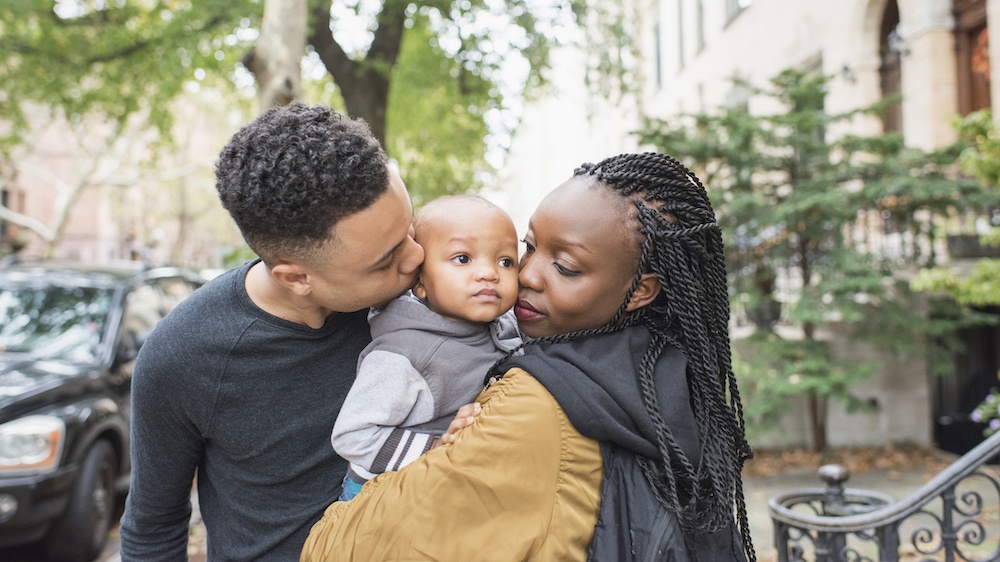If you’re interested in sharing your opinion on any cultural, political or personal topic, create an account here and check out our how-to post to learn more.
On October 15, the next round of presidential primary debates will take place outside Columbus, Ohio. It’s the first debate stop in the Midwest since Democratic hopefuls descended on my home community of Detroit.
In late July, we disappointedly watched as the candidates outlined issues that matter to us — education, health care and the minimum wage — but failed to represent us. In a city where 79% of residents are Black, located not far from Flint — the epicenter of this country’s disregard for Black families’ health — candidates struggled to articulate a vision for economic justice that benefits all workers while responding to the generational harms of racism.
Decades of oppression manifest on both our paychecks and our bodies, and for Black millennials like me who are making the daunting journey into parenthood, failure to prioritize laws that care for our families over those that profit off our bodies remains a primary concern.
Despite our nation’s remarkable wealth, the economy has never worked for most Black families. Childcare costs are way too similar to the college tuition bills many of us are still paying off. Paid sick days and family leave also remain luxuries for far too many.
A 2015 study found an estimated one in four women were forced to return to work within two weeks of giving birth. For women of color, the economic necessity to return quickly to work reflects that two-thirds of us serve as primary or equal breadwinners for our families. We’re also disproportionately underpaid and more likely to work in service industries where many workers lack access to paid sick days.
When left to choose between supporting your family or missing a paycheck, the idea of taking time to care for family members, let alone yourself, is quite daunting.
No matter how hard we work, many of us will struggle to rise above the economic means we were born into. But that’s precisely why government programs exist: to invest in families who, when healthy, can help build strong communities and more prosperous futures.
Programs like the Supplemental Nutrition Assistance Program (SNAP) and Medicare or Medicaid provide a critical safety net for working families. Roughly 33 million people participate in SNAP, making it the most effective anti-hunger program in the country, reaching children, seniors and people with disabilities.
Medicaid provides health coverage to over 36 million children, including more than 9 million kids covered under the Children’s Health Insurance Program (CHIP). Medicaid also paid for nearly half of all U.S. childbirths in recent years. States who expanded Medicaid coverage under the Affordable Care Act (think Obamacare) saw a 50% decrease in infant mortality rates compared to non-expansion states.
In a nation where Black infants remain twice as likely to die in their first year than their peers, and at a time when Black mothers remain three to four times more likely to die of pregnancy complications than white mothers, failure to expand access to healthcare tells us a lot about where a candidate stands.
Following historic turnout of Black voters in the 2012 presidential and 2018 midterm elections, candidates also know their path to the White House will be fundamentally shaped by turnout in states from Michigan to the South.
From Trump’s pandering over economic gains for Black people to the careful eye Democratic frontrunners pay to polling in primary states like South Carolina, our political power is real.
When I tune in on October 15, I want to hear candidates voice their support for an economic and human rights agenda that helps solidify Black millennials’ footing in a just society.
Sen. Kamala Harris’ The Maternal CARE Act, co-sponsored by Sen. Cory Booker, Sen. Amy Klobuchar, Sen. Bernie Sanders and Sen. Elizabeth Warren, would address racial bias in maternal healthcare and expand culturally competent care options for expecting mothers.
Sen. Harris also introduced legislation to alleviate the financial stress of rising housing costs, and Rep. Rashida Tlaib of Michigan has pressed for legislation to expand tax credits for low-income workers and families.
Taken together, all the ingredients are there to help our families thrive. All we need now is political leadership willing to place Black families at the center of policy reform conversations. Whether you watch the debates or not, know that your voice matters. We’ve profoundly shaped recent electoral outcomes, and we’re ready to do so again in 2020.
____
Alexis Sims is the communications director at Mothering Justice, based in Yorkshire Woods on Detroit’s eastside. Follow her work at @momjustice.

